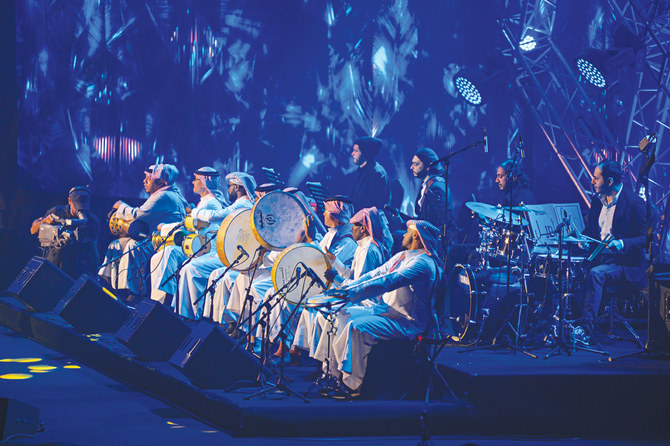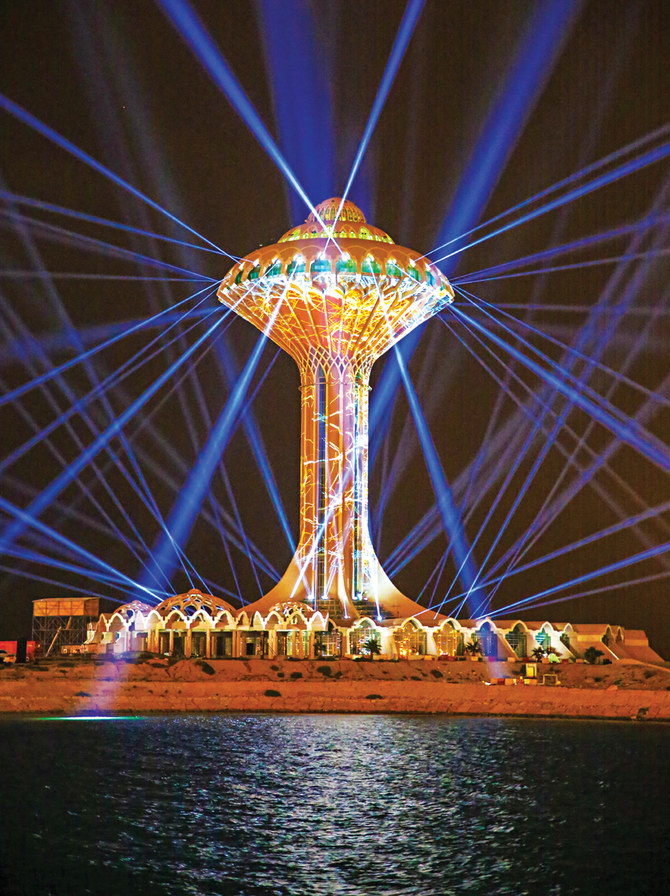ALKHOBAR: You could feel the electricity in the air, and not just from the lightning on Thursday night. Visitors at the first Sharqiah Season turned out in their thousands all along the East Coast, despite high winds and the odd sprinkling of rain, and were treated to everything from skateboarders and stilt walkers to music, motorbikes, fireworks and concerts on the first weekend of the 17-day festival.
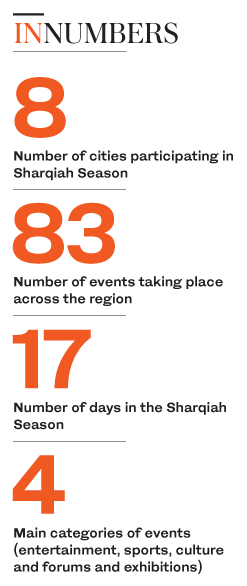
Sharqiah Season, featuring more than 80 events in Eastern Province cities, is the first of 11 festivals planned for the Kingdom in 2019, organized by the Saudi Commission for Tourism and National Heritage, with the General Entertainment Authority, the General Culture Authority and the General Sports Authority.
It was impossible to miss the buzz in Alkhobar on the opening night, with searchlights in the sky marking the sites of two large areas set up on the Corniche: One for entertainment, the other for a cultural village.
“What’s happening in Sharqiah is humongous, to tell you the truth, and it’s only the first day,” said Labeed Assidmi, a vendor in the Crystal Market zone near the entrance. “Saudi is changing for the better, and everyone is so excited.”
Assidmi said he had watched big events elsewhere in the Kingdom with anticipation. “I’m a huge fan of music, so when the concerts in Riyadh and Jeddah happened, like those at Formula E, I was jealous. It feels so good to finally have Sharqiah recognized.”
While international music acts Pitbull, Akon and DJ Tiesto perform next weekend, big-name Arabic singers Mohammed Abdo and Rashed Al-Majed entertained the crowds this weekend.In Dammam’s Life Park, the Montreal troupe Cirque Eloize played to a packed house on opening night.
Strong winds put off the fireworks planned the night of the opening, but the crowds were still treated to a light show on the Khobar Water Tower. Hind Mubarak, who had come to the Corniche with her family, said: “It is a little disappointing, especially for the kids, but the light show was fun
to watch.”
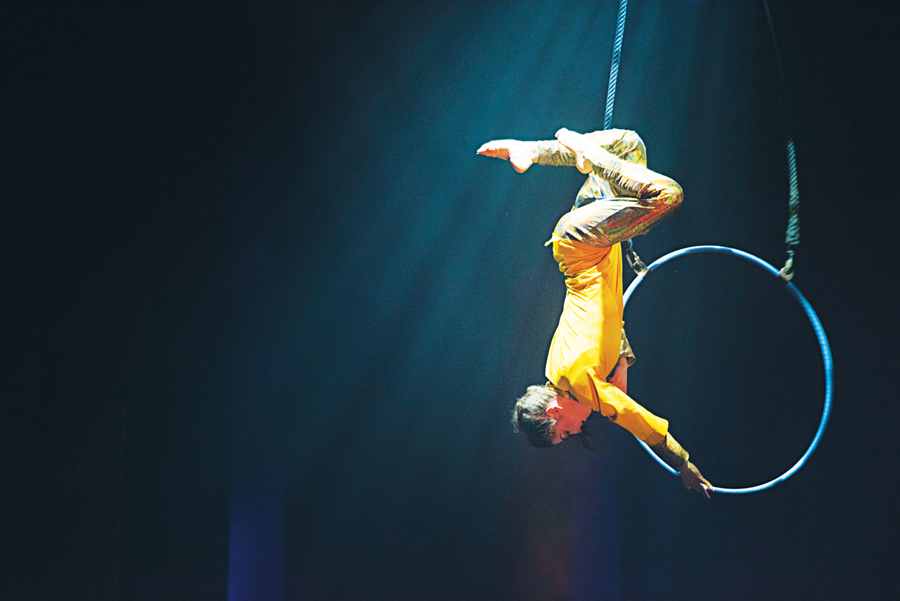
Sharqiah festivities drew crowds from far and wide on its opening weekend . (Arab News photo by Essam Al Ghalib/EP Media Center)
See more photos from Sharqiah Season’s opening weekend here
Those who came out to watch the fireworks in Al-Ahsa on Friday night were not disappointed. Ghuneim Abdelatee, 57, was there with his granddaughter.
“She has never seen fireworks before,” he said. “In fact, there are many firsts that she is experiencing here now in Saudi. You can say the same for me, too. The music concerts, the cinemas, so much to see and do here now.
“People used to go to Bahrain for entertainment. Now I think they will be going less.”
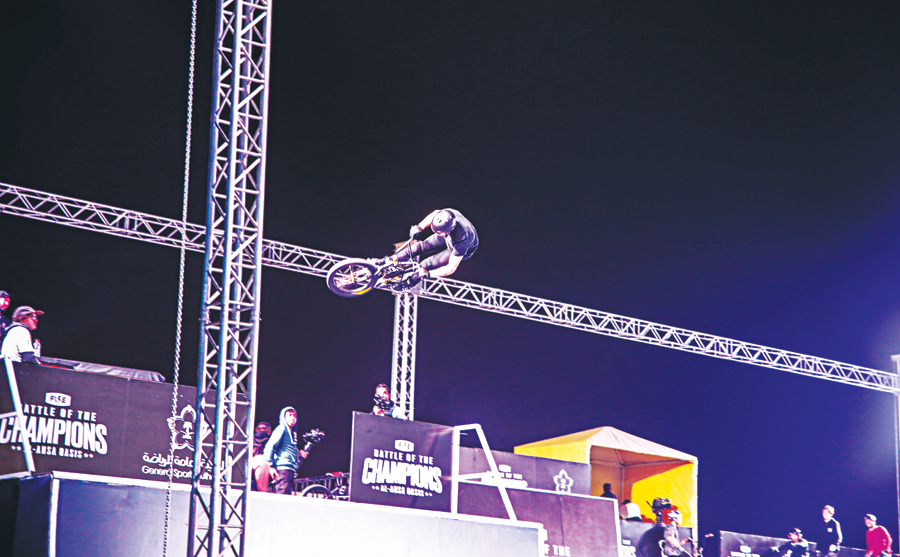
Sharqiah festivities drew crowds from far and wide on its opening weekend . (Arab News photo by Essam Al Ghalib/EP Media Center)
Also taking place at King Abdullah Adventure Park was the FISE “Battle of the Champions,” bringing together the top 12 skateboarders in the world, all vying for the number one position.
“To practice on a ramp like this is a dream come true,” said Moaiyad Al-Salmi, 20. “We need a proper skate park built here, something that would bring the community of Saudi and non-Saudi skaters together. If we had events like this every weekend, and skate parks like this everywhere, we would find a Saudi competing for the World Series.”
The Ithra Forum, organized in various cities throughout the month, will provide people with more intellectual pursuits.
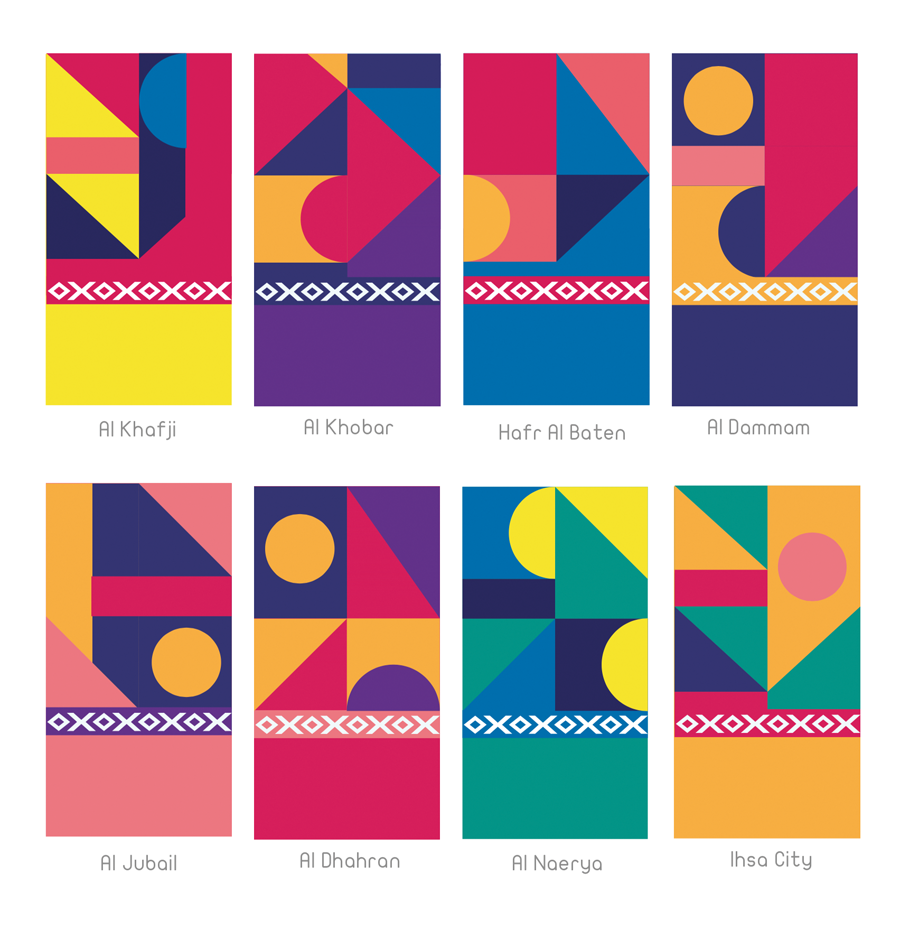
“Curiosity” was the opening
topic at Dhahran’s King Abdul Aziz Center for World Culture, where speakers included Faisal Al-Saif, founder of TechPills, filmmaker Hakeem Jomah, and “Telfaz11” personalities Faris and Sohayb Godus.
While not all the events went as planned — Friday’s Naseer Shamma concert in Al-Ahsa’s Ibrahim Palace was rescheduled at the last minute — one thing is certain. If you were wondering what to do at the weekend, the coming weeks will give you plenty of choice.
*****
Sharqiah Season continues until March 30, with upcoming weekends featuring sports events such as the Red Bull Air Race and the Formula 1 H20 boat race, as well as concerts in Dammam featuring Akon, Deadmau5, Pitbull and French Montana.



